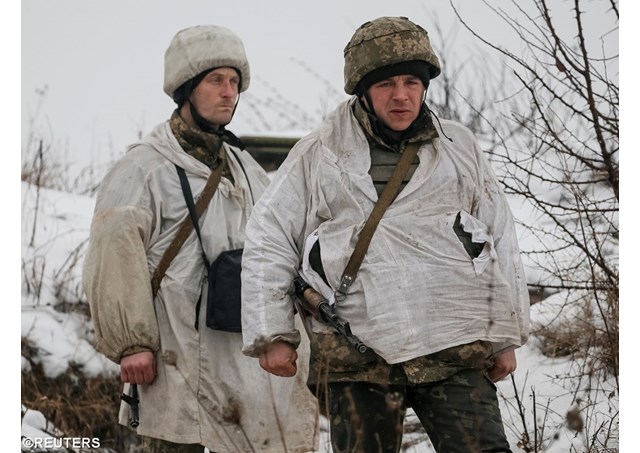
Rebel Commander killed as clashes escalate in east Ukraine

(Vatican Radio) Pro-Russian separatists in eastern Ukraine claim that one of their top commanders has been assassinated by Ukrainian government forces. Lugansk People's Militia commander Oleg Anashchenko died early Saturday when his automobile exploded amid the worst clashes in the region since 2015.
Listen to the report by Stefan Bos:
Security forces and investigators surrounded a burned out vehicle in snow covered eastern Ukraine.
The rebels' official Lugansk Information Center also said that a second, unidentified person in the car, was also killed in the explosion in Lugansk city.
Lugansk is one of two Ukrainian republics where separatist rebels have been fighting government forces since April 2014 in a war that has killed more than 9800 people.
Among those arriving at the scene was Leonid Tkachenko, the leading investigator of the prosecutor's office in the self-declared Lugansk Peoples Republic. "The vehicle, a Toyota Land Cruiser, exploded today at around 7:58am [local time]," he told reporters. "The explosive device had been placed under the hood," he added.
KIEV BLAMED
A militia spokesman, Andrei Marochko, said Ukrainian special services were responsible for the blast. Fighting in eastern Ukraine sharply escalated this week. The Ukrainian command said Saturday that three of its soldiers were killed in the past day.
More than 30 people, including civilians, are now known to have died and several dozen injured in fighting this week in eastern Ukraine between government forces and the pro-Russia separatist rebels.
Fighting is especially reported around the town of Avdiivka. A deputy chief monitor of Europe's security organization OSCE, Alexander Hug, urged the warring sides to immediately end the worst violence in the region since 2015. "The heavy weapons that have been used by the other side to hit this this part of Avdiivka, and by this side to hit [nearby] Donetsk," he said while visiting the troubled region and meeting desperate residents.
"They [the heavy weapons] should not be there where they have been fired from," Hug explained. "And there were moments when it was not possible to count the violations [of the ceasefire and peace agreements] because they were overlapping and constant," he noted. "The sides have to stop firing immediately. We know they can. We have seen many times that they have full command and control. It is not an impossibility," Hug stressed.
Yet, his appeal has done little to ease tensions and many civilians now suffer in freezing temperatures amid power and food shortages.
| All the contents on this site are copyrighted ©. |


